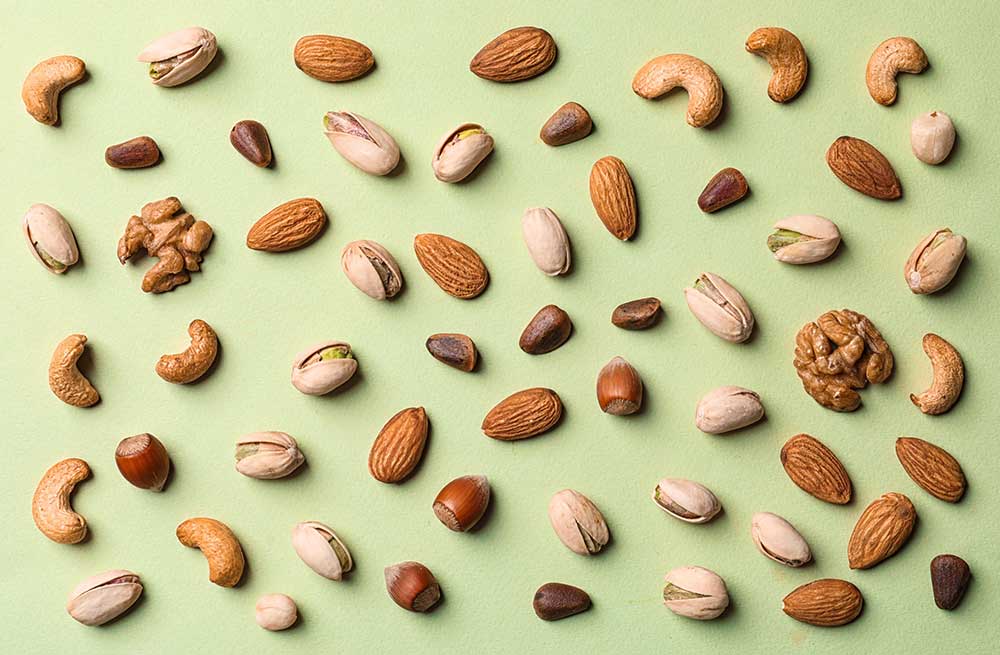Understanding Cholesterol and its Impact
Cholesterol is a substance made by the liver, and also absorbed from food, that’s essential for hormone production, vitamin D synthesis, and cell membrane structure. The way it impacts the body is influenced by a person’s genetics, diet, physical activity, weight, and medications they are taking.
- LDL cholesterol is 'bad' and contributes to heart disease risks, while HDL is 'good' and helps clear LDL from the bloodstream.
- A heart-healthy diet lowers saturated and trans fats while emphasizing unsaturated fats, soluble fiber, and whole foods.
- Consistent dietary changes can significantly improve cholesterol levels within weeks to months.
- Adopting the 80/20 rule promotes a balanced approach to eating, combining nutrient-dense foods with occasional indulgences.
Cholesterol travels in the bloodstream via lipoproteins: LDL (low-density) and HDL (high-density). LDL cholesterol, often referred to as ‘bad’ cholesterol, can contribute to plaque buildup in the arteries (atherosclerosis), increasing the risk of cardiovascular disease, heart attack, stroke, and peripheral artery disease. HDL, however, is known as “good” cholesterol, and helps remove LDL from the bloodstream.
Unlike many other conditions, cardiovascular disease often has no symptoms until it’s severe. So it’s crucial to monitor cholesterol intake and check levels via regular bloodwork.
Key Principles of a Heart-Healthy Diet
A diet that’s considered heart healthy…
- Has low levels of saturated fat and trans fat
- Emphasizes unsaturated fats (monounsaturated, polyunsaturated)
- Is high in soluble fiber
- Prioritizes whole, minimally-processed foods
- Emphasizes lean protein sources (fish, poultry, legumes, soy)
- Limits added sugars and refined carbs
- Encourages plenty of fruits, vegetables, and whole grains
- Supports weight management and metabolic health
Eating patterns such as the Mediterranean diet, DASH, and portfolio diets are evidence-based models that promote cardiovascular health and can improve cholesterol levels. We love these eating patterns as guides, because they’re less about elimination and focus on consistent choices that can be sustained over time. Also, these eating patterns are supported by major health organizations, including the American Heart Association (AHA) and National Lipid Association (NLA), for improving lipid profiles and overall heart health.
Foods to Include in a Cholesterol-Lowering Diet
If you’re looking to lower your LDL cholesterol and improve levels overall, certain foods and nutrients can help you along the way. To promote balanced and healthy cholesterol levels, consider the following:
- High-fiber foods: Focus on soluble fiber, which binds to cholesterol in the gut and helps remove it from the body. Aim for 7–13g/day.
- Oats and barley: rich in beta-glucan, a soluble fiber proven to lower LDL when consumed regularly (~1.5 cups cooked oatmeal/day)
- Beans and lentils: just ½ cup/day can lower LDL by 5–10%
- Apples, pears, flax seeds, chia seeds, and psyllium husk are excellent soluble fiber sources
- Healthy fats: Replace saturated fats with unsaturated fats to improve cholesterol ratios and reduce inflammation.
- Olive oil: especially extra virgin, rich in polyphenols and heart-protective antioxidants
- Avocados: provide monounsaturated fats, fiber, and plant sterols that block cholesterol absorption; one avocado/day shown to reduce LDL
- Nuts (almonds, walnuts, pistachios): 1 oz/day has been shown to reduce LDL by ~5%
- Fatty fish rich in omega-3 fatty acids (EPA and DHA), which lower triglycerides and reduce cardiovascular risk.
- Best options: salmon, sardines, mackerel, herring
- Aim for 2 servings/week (3.5 oz cooked) per AHA guidelines
- Soy foods: Soy protein may help reduce LDL when replacing animal proteins.
- Tofu, tempeh, edamame, soy milk
- 25g/day of soy protein can reduce LDL by 3–5% (FDA health claim)
- Fruits and vegetables are high in fiber, antioxidants, and phytonutrients that support heart and metabolic health.
- Pectin-rich fruits like apples and pears are especially helpful for lowering cholesterol
- Aim for at least 5 servings/day
- Whole grains retain their fiber-rich bran and germ, helping reduce cholesterol and blood sugar spikes.
- Best options: oats, barley, quinoa, brown rice, bulgur, farro, whole wheat
- 3 servings/day of whole grains can reduce LDL by ~5%
- Look for packaged grains with ≥3g fiber/serving
- Green tea contains catechins, which may modestly reduce LDL cholesterol and improve endothelial function.
- Aim for 1–2 cups per day without added sugar.
Foods to Avoid or Limit
When looking to optimize cardiovascular health and cholesterol levels, there are certain foods to limit or avoid to reach your goals. These include:
- Saturated fats such as red meat, full-fat dairy, butter, coconut oil
- Trans fats including hydrogenated oils (look for “partially hydrogenated” on labels), as well as fried foods and many baked goods
- Ultra-processed foods like pre-packaged snacks, sugary cereals, and processed meats
- Added sugars such as soda, pastries, and sweetened beverages can worsen triglycerides
- Refined carbs like white bread, white rice, and pasta can spike blood sugar and promote fat storage
- Excess alcohol especially raises triglycerides
Tips for Long-Term Success
To promote cardiovascular health and healthy cholesterol levels over time, we recommend a series of habits and lifestyle changes that feel attainable and sustainable—no crash diets or extreme changes that’ll lead to burnout. A few of the tried-and-true tips we recommend include…
- Cook more meals at home using heart-healthy oils and ingredients
- Choose baked, grilled, or steamed over fried
- Snack smart: Reach for nuts, fruits, veggies, and low-fat yogurt
- Use herbs, spices, and citrus for flavoring instead of salt
- Build balanced meals: Combine protein + fiber + healthy fats
- Increase physical activity, including aerobic and resistance training—your heart is a muscle!
- Set realistic, sustainable goals…small changes add up!
- Start with one swap at a time (e.g., morning oatmeal instead of sugary cereal)
- Meal prep with heart-healthy basics (use beans, grains, roasted veg, unsalted nuts)
- Read labels! Pay attention to fiber, look out for saturated fat and added sugars
Fiber
A fiber-rich diet is crucial for maintaining cardiovascular health and supporting a healthy weight. Fiber, particularly soluble fiber, has been proven to lower cholesterol levels, help regulate blood sugar, and reduce inflammation in the body. In terms of benchmarks, we recommend getting around 25-30 grams of total fiber per day, with 7–13 g from soluble fiber, which binds to cholesterol in the digestive tract and helps remove it from the body.
Where to get this? Look for oats, barley, beans, psyllium, flax seeds, and chia seeds.
Saturated Fat
While unsaturated fat is healthy for the body, saturated fats should be limited, as they can increase risk of cardiovascular disease and spike cholesterol levels. As a goal, we recommend less than 7% of your total daily calories come from saturated fat. If you’re eating a 2,000-calorie diet, that means to aim for less than 15g of saturated fat per day. Most saturated fats in the diet come from animal products like fatty cuts of meat, full-fat dairy, and tropical oils (coconut, palm, palm kernel).
It’s best to aim for 0g of trans fat, and fully avoid ingredients like “partially hydrogenated oils”, as even small amounts can raise LDL and lower HDL.
Added Sugars
High sugar intake can contribute to various heart-related problems, including inflammation, high blood pressure, and increased cholesterol levels. We recommend women intake less than 25g per day of added sugar, and for men to consume less than 36g per day.
Tip: Choose foods with <5g added sugar per serving. The good news? Many heart-healthy foods like oats and plain yogurt have 0g. Watch for sneaky added sugars in granola bars, flavored yogurts, salad dressings, and condiments.
The 80/20 Rule
We’re aiming for consistency here, not perfection! As registered dietitians, we know how rigid rules and extreme restriction can often lead to fully abandoning our health goals altogether. Instead, we recommend gradual, attainable swaps and changes. The 80/20 rule is a prime example of that.
The 80/20 rule in nutrition refers to a flexible and sustainable approach to eating:
- 80% of the time: focus on nutrient-dense, whole foods that support your health goals (fruits, vegetables, lean proteins, whole grains, healthy fats).
- 20% of the time: allow room for less nutritious or indulgent foods you enjoy (desserts, wine, chips, takeout, etc.)
Why it Works
Our clients often find success with the 80/20 rule because it encourages consistency and small wins over high-pressure perfection. Time and time again, we see that it prevents an all-or-nothing mindset and reduces guilt or shame around food, which is key to a positive relationship with eating. This in turn supports long-term behavior changes that feel sustainable!
FAQs on Cholesterol and Diet
Can You Lower Cholesterol Without Medication?
Yes, many people see meaningful drops in LDL with dietary + lifestyle changes alone. However, success depends on baseline levels, genetics, and long-term adherence to habits. Dependent on these factors, doctors may deem that some individuals still require medications (e.g., statins) for optimal risk reduction.
How Quickly Can Diet Improve Cholesterol?
Initial improvements in cholesterol levels can often be seen within 4–6 weeks of dietary changes. Significant reductions, especially in LDL, typically occur over 3–6 months with consistent adherence. It all depends on where you’re starting from, and how consistent or aggressive you are in meeting your goals.
Are All Fats Bad for Cholesterol Levels?
No! Unsaturated fats (monounsaturated fats and polyunsaturated fats are beneficial to our health. In fact, healthy fats (HDL) are what remove “bad” fats from our bloodstream. Trans fats and saturated fats are bad for our cholesterol levels, raising LDL.
Healthy swaps: Use olive oil instead of butter, and reach for fish or legumes instead of fatty meats.
What Are Some Easy, Heart-Healthy Snack Ideas?
- Handful of unsalted almonds or walnuts
- Apple slices with natural nut butter
- Edamame with sea salt
- Roasted chickpeas
- Avocado toast on whole grain bread
- Plain Greek yogurt with berries and chia seeds
- Veggie sticks + hummus
- Baby carrots + hummus
- Oatmeal bites with flax or chia seeds
- Handful of walnuts or pistachios
The Bottom Line
If your provider lets you know that your cholesterol is high, don’t worry—there’s something you can do about it! Take small steps to make dietary and lifestyle changes that support your cardiovascular health, and monitor or re-test labs every 3–6 months so you can see what moves the needle. If you’re looking for more ongoing support along the journey, a registered dietitian can help. Book a session with a Culina Health RD today!






